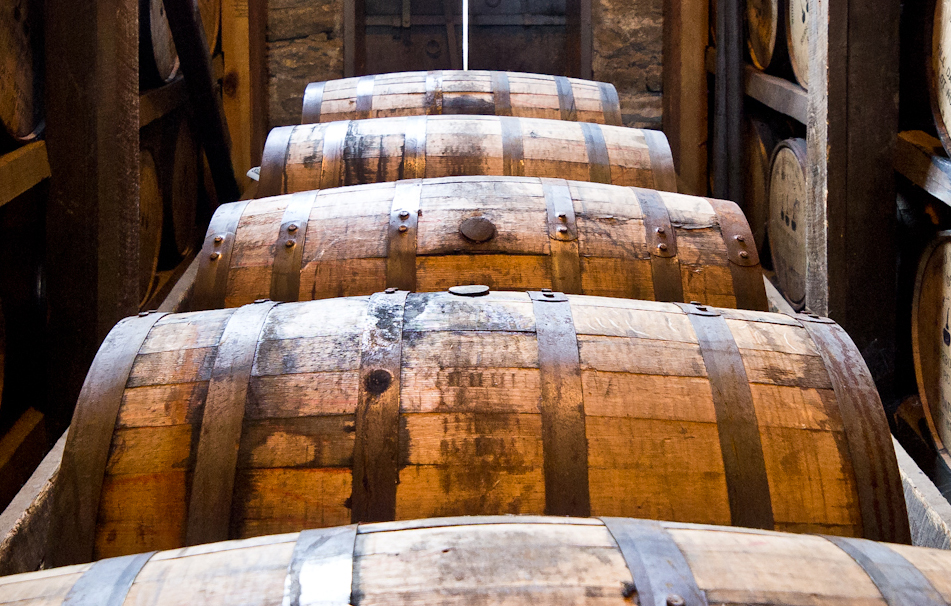
The big warehouse of SPEAKeasy Spirits distillery in West Nashville is lined with dozens of barrels. In a few years, there might be thousands of them.
“We’re going to start construction on a big barrelhouse because we’re running out of room,” says Jenny Pennington, one of the the company’s founders.
SPEAKeasy is among an influx of new distilleries in Tennessee, many of which want to make the state’s signature liquor — whiskey. But there’s a problem: They can’t just open up shop and start selling it. They have to let it sit in a barrel and age.
And this process is a huge investment. To start making whiskey, they have to buy the equipment, the barrels, the space to keep the barrels — for something that can’t go on the market for another several years.
“Every time you lay down a barrel of whiskey, you’re pretty much writing a check and just putting it on the shelf for four to six years, however long you’re going to age it,” Pennington says.
So as a faster form of payment, some companies are turning to other liquor while they’re waiting on whiskey. SPEAKeasy, for example, recently bought a state-of-the-art vodka still and started selling the liquor in April, under the brand name Pickers Vodka.
“It’s wonderful because you can make vodka today, and it’s ready for the market tomorrow,” Pennington says. ”We’re certainly handcrafting it and buying the finest corn, but it is probably more lucrative because you’re not having to wait. You’re getting your return on your investment a lot faster.”
New Kids On The Block
This is a good time for a booze history lesson. For decades after prohibition, opening up a distillery in Tennessee was extremely difficult. Only three were able to do it: George Dickel, Prichard’s and, of course, the ever-popular Jack Daniel’s.
But in 2009, state Sen. Bill Ketron (R-Murfreesboro)
introduced a bill to allow more liquor producers to open.
“Right now, members, there are 393 permitted spirits distillers and bottlers in the United States,” he told a Senate subcommittee, before launching into an explanation of how they would pay a lot of state and county taxes.
The law passed. Now, Tennessee has 36 distilleries, according to the state’s Alcoholic Beverage Commission.
Nelson’s Green Brier Distillery, for example, started producing bourbon in Indiana in 2006 but moved to Nashville after the law changed — it’s filling a couple of barrels of Tennessee whiskey every day. One of its interim products is an un-aged white whiskey, the legal version of moonshine.
“That is from my triple-great-grandfather’s original recipe,” owner Charlie Nelson explains with pride.
‘Can’t Cheat Time’
Bringing aged liquor to market requires a lot of patience, Nelson says. “Everything about this business is a long, slow process. And if you rush it, you might make a mistake.”
Green Brier plans to start selling its whiskey next year. Even then, it won’t stop producing white whiskey — nor will SPEAKeasy Spirits stop producing vodka, says owner
Jenny Pennington.
But the company is incredibly eager to put its aged liquor on the shelf, she says.
“We can’t cheat time, but if we could, we would fast-forward and be drinking a whiskey on the rocks right now.”
By then, more Tennessee distilleries may have joined the slow and steady race.


